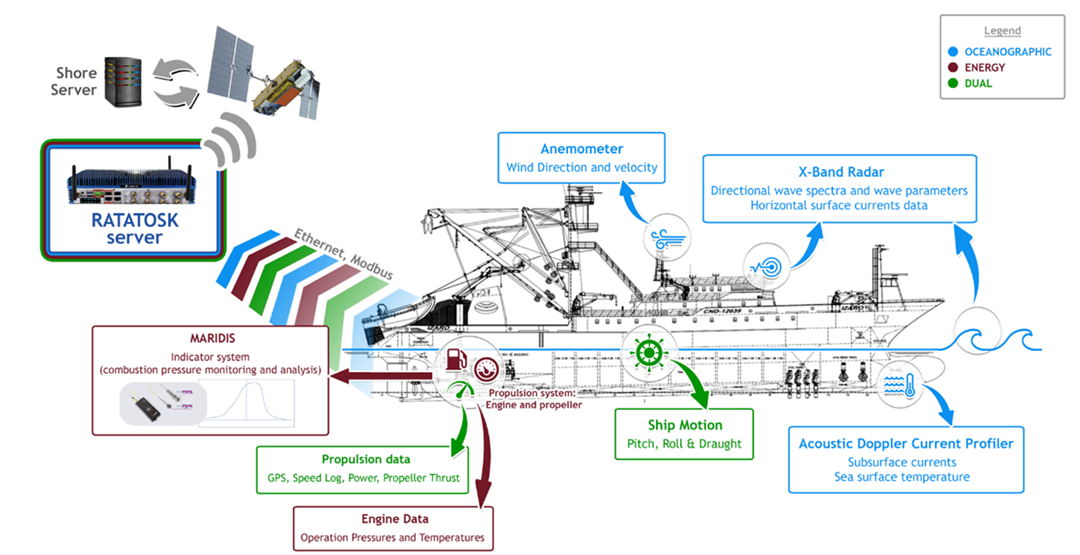Tuna is among the world's most popular fish and fished in more than 70 countries world-wide. SusTunTech will help the industry implement more sustainable practices.
SusTunTech offers a compact and cost-effective system to improve the energy efficiency of tuna fishing vessels by at least a 25 % compared to current practices. Advanced vessel monitoring, Copernicus data and machine learning will be combined to propose strategies to improve the understanding of fish distribution, reduce time at sea, save fuel and better route planning. This will fill the current need to reduce emissions of all human activities without reducing production, as demanded by the Paris Agreement.
SusTunTech offers the integration and further development of existing technologies into existing and new commercial products, which can later be applied to other types of fishing vessels or even other maritime industries. This will contribute to the economic sustainability in the fishing industry, increase the revenue for the product developers and enable research institutions to continue their research and innovation activities after the project.
SusTunTech will contribute to improve Copernicus (the European system for monitoring the Earth) by using fishing vessels as platforms to capture oceanographic data.
SINTEF's main contribution to the project is onboard data collection using our Ratatosk software, as well as making this software ready for commercialisation and third party use.
The project is a cooperation between:
- SINTEF Ocean
- Marine Instruments
- AZTI
- Newcastle University
- Maridis
- Zephyr
- Universidad del País Vasco
- Echebastar
The SusTunTech project has received funding from the European Union's Horizon 2020 research and innovation programme under grant agreement No 869353.
This project extends the DataBio project, which resulted in the book described on this page.


